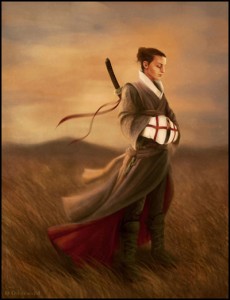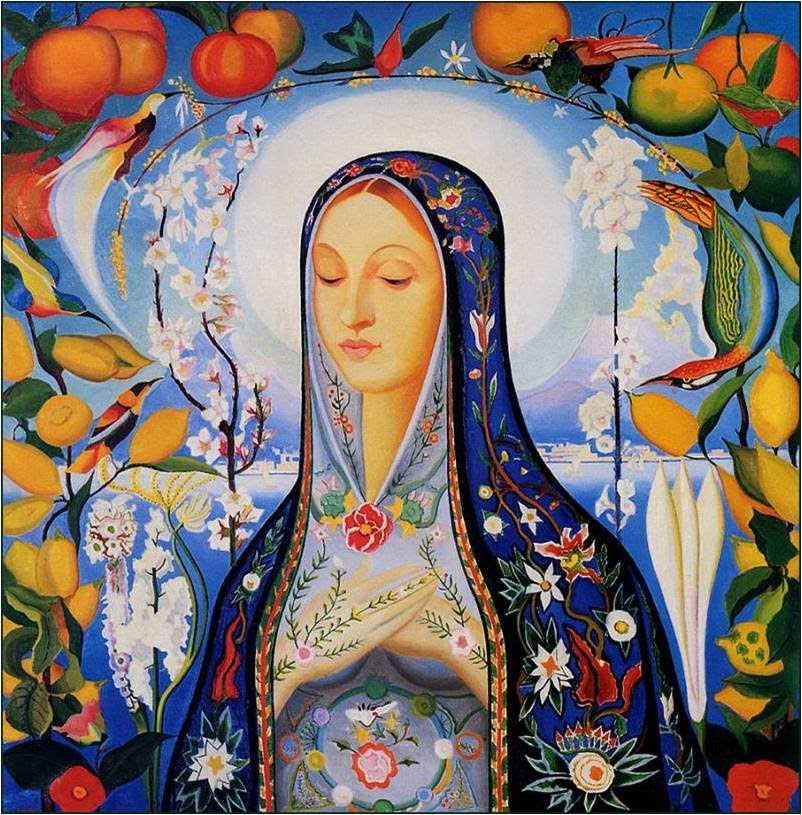The New Dignity
by Stuart Wilde
In a world that is degrading in its moral standards and the treatment of others, we seek to discover a new dignity – not a pomposity or a grand, vainglorious stance, but a silent composure that speaks of one who is strong and well versed in his or her understanding of the eternal Tao and the way energy delicately ebbs and flows. I’ve discussed the absence of malice and how if we seek to achieve real composure, we have to detach from the insidious nature of the mind that protests every little setback and takes up the cudgel of indignation for every situation we’re in.
I was taught by the higher beings that the torment of the innocent isn’t our individual responsibility. All must grow and learn through their karma and work their way out of the difficulties they get into. People must be allowed to process their pain. It sounds brutal, but that’s the only way they grow spiritually. And yes, this applies to you. You have to become mature, sort your situations out, and suffer your karma without grumbling. This is the new dignity you can acquire.
To arrive in the transdimensional world of the misty Lake of Avalon, you have to be finished with the affairs of man and their struggles of light and dark, blame and recrimination. It stands to reason that to transcend, you have to go past human things, human concerns, and you must process your pain and resolve it and fall to silence – as a settled human whose mission has been completed. Then you’ll step out of the ghoul evolution of humans into the magical world of the Aluna animals that can talk and think and act in magical ways, that react to love and soft emotions – animals that work tirelessly to bring about the Renewal that lies up ahead.
It is a fairy-tale dimension of mythical Tao-beings – ones that await you. Grace awaits…the celestial goodness is there for you to accept and embrace if you wish, as is the miracle healing…it is all there. This is not a myth – it is all real and here right now in our solid reality for you to stumble upon.
The world of the Tao-beings is a real one, just as our world is real; the Avalon Lake is at a real location, only a mile or so up and over the little green hill that stands in the lands behind the pub; and the Camelot arches that are placed in the forests and in other locations (some are in cities) are also real to see. I’ve been to 30 or far.
The multidimensional celestial world has gradually threaded its way into ours like the fingers of God interlocking with those of our frail human hand, weaving the speckled ambiance of the Aluna through our soul. This interlocking of the dimensions will save us and allow us to evolve to become beings of pure light. Essentially, you can enter into your next incarnation as a Light Being without having first died in this one.
To “arrive” implies a journey that anyone can take, like a taxi ride from the railway station, but to understand it properly, you have to substitute the words be the same as instead of the verb arrive. So to arrive at the Camelot arches, you have to “be the same as” the arches. To see a hundred stags from the Aluna shoulder to shoulder on the shores of a moonlit lake, which we have seen, you have to “be the same as” a hundred stags, with the same silent majesty – the same power, profundity, dignity, and serenity. To see the Lion of Judah face-to-face inches from your nose so that you can even feel its breath on your skin, you have to have the same courage and bravery, the same agility, the same breathtaking dignity as the lion.
With a new dignity, you shift your mind from traveling toward where you might want to go, and striving endlessly to get there, to becoming instead “the same as” the place you’d like to find yourself in. It is an ambiant resonance in your heart, not a residency that’s established by arriving someplace. It’s very subtle.
The bearing of decorum and serenity we hope for takes a while to achieve, but we have time; and the grace I speak of is an outcropping of a silent, spiritual nobility that seeks little for itself, one that is settled and neutral toward all things toward all things, toward all matters as they arise. It is the settled heart that so few possess – humans who don’t rush about hither and thither, raise their voices, or act coarsely…. those who don’t need to exert themselves in the company of others, who can listen without speaking, who are happy to take the last place, happy to wait through all eternity if need be. It’s the heart that beats in time with the collective hearts of multidimensional hyperspace, both human and nonhuman, rather than the solitary human one that beats only to its ego’s desires.
The new dignity is incorporated in a delicate aestheticism, which is sometimes described as a “critical appreciation and reflection upon art, culture, and the natural world.” It is the world of refined judgments, sentiments, and taste. We say it is the soft eye of men and women of distinction who see beauty in the philosophy of art and the subtlety and refreshment of nature – the aesthetics of the polymath: a person who has an intrinsic eye for beauty and can command skills in many a field, be it painting, architecture, sculpture, music, or design.
The multi-talented polymath is a person like blessed Hildegard of Bingen, a German abbess in the 1100s who founded several monasteries. She was also a writer, linguist, scientist, philosopher, herbalist, poet, and visionary. She is thought to have been the founder of modern opera, and she was the first woman who wrote about the female orgasm. She was also an accomplished painter. Her whole life was an example of pure information as an inspiration from the celestial.
And of course, Leonardo da Vinci, who is known as the Renaissance man, is the most famous polymath. His dignity and reverence for God and his eye for beauty took him to pure information that no one had at that time, so he drew helicopters and submarines 400 years before they were finally invented. The dignity of his aestheticism carried him head and shoulders above all others. It is the detached dignity that comes from a respect for beauty and the love of the feminine spirit that opens the doors of creativity for you.
The settled heart of the newcomer to this dignity spreads out far and wide, for it thinks and feels as few humans can. Such people can see because they’re not cluttered by the madness of the mind and its emotional reactions; rather, they’re settled and linked to higher information and dignified calm. The settled heart soon sees that it has few needs it cannot provide for itself, so that gives it a selfless decency.
When people aren’t leaning on others etherically or emotionally, this equitable stance lends them an intrinsic width that you could describe as the breadth of their etheric field (its sideways motion). Remember that the traumas and needs of the ego are vertical. So in serenity, the width of a person’s logo is carried naturally outward toward the celestial, which, you know, follows the same sideways path or direction as the transverse wave of light that’s placed at 90 degrees sideways to the normal path of light.
The narrow mind installs a constrained, tight energy around a human – it travels nowhere, or it travels down the dull conformity of a tick-tock life, parroting what others are parroting. It is a facet in the dull mind of a collective normality. The person’s inability to create new ideas comes from the mind’s inability to go wider, to become original, so it falters. In fact, etherically, it attempts to suck energy from others to sustain itself and achieve more elevation. Soon one falls back into a false entitlement, feeling others should sustain one. To radiate silently is dignified; to pillage is not so.
Certainly, we have to pay rent, raise children, and arrive at work on time…but we must learn to do all these things without falling off balance and losing ourselves and our dignity in the struggle. By walking slowly and deliberately through life in a calm and centered way, with as much grace and dignity as possible, we arrive without moving very far, if at all. It is undignified to struggle and lean into people, demanding things, to tussle to win their affection and acceptance, or to fight to get them to act in certain ways they’re often incapable of.
Struggle and confrontation will drag you down. So, instead, smile on them and their weaknesses, and laud their every success while praying for their good fortune and well-being. That’s why it’s important to walk in the rhythm of the heartbeat of Gaia, to be sustained and taught by that, and to have all your desires tempered so that in your clarity and simplicity, you lack for nothing, as there’s nothing much you want.
The dignity I speak of isn’t hard to achieve, but you do have to let go. You fought the good fight, marching under the blood-red banner of your emotions and indignations; and you shunned evil, often reacting to it, not realizing, perhaps, that you were only ever looking at an outer manifestation of yourself and your darkness.
What justice do we really seek? What pleasure will a hollow victory or vengeance over human evil really offer? To struggle to be better than the hopelessly weak or he indolent – or to be more handsome than the gnarly, narcissistic face of humanity – is of no great achievement. Squeaky-clean is irritating, like fingernails grating on a blackboard; and anyway, the pretense of it serves no purpose, for none of us is spiritually ever much more than various shades of dull gray. Besides, the “squeak-squeak” of squeaky-clean is like hungry mice scurrying along the baseboards of your sentiments and aspirations, keeping you awake at night judging yourself in the light of others and worrying.
Let the banner of your protest drop from your blistered hand…and in that way you will have two arms free with which to embrace humanity and allow the new dignity to carry you beyond the world of the mundane, justice and injustice, and the vicissitudes of a poorly understood karma.
In the end, the only triumph is to return home, and the eternal Tao is the compass we use to grant us the resonance of that safe return. The Tao is woven into the souls of the animals, and without them to guide us, we can’t arrive at the celestial, for they are its keepers.
Stuart Wilde
www.stuartwilde.com



